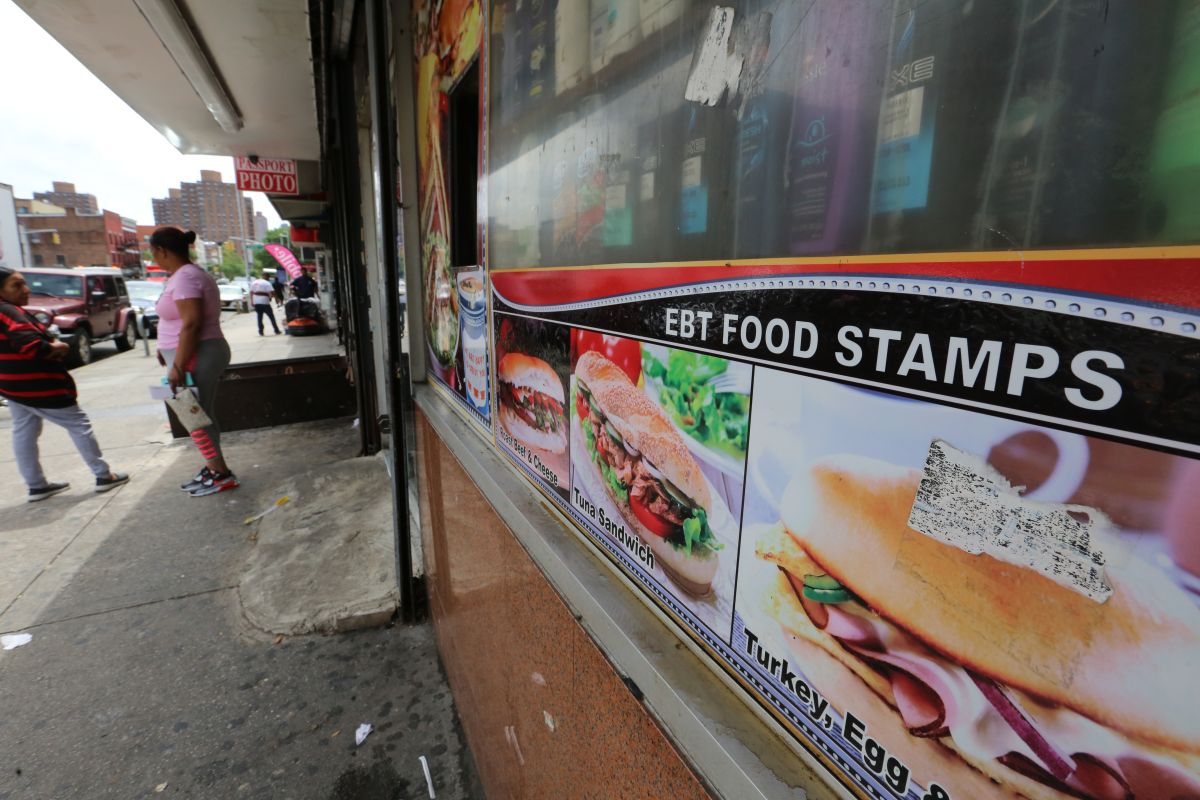Although the extra funds from the pandemic Supplemental Nutrition Assistance Program (SNAP) ended last month, some states such as New York, New Jersey and Massachusetts have provided additional help to citizens to buy food through local initiatives.
In New York, for example, Governor Kathy Hochul announced in the middle of this month that SNAP recipients in the state will receive $2 for every $2 spent instead of $2 for every $5 spent.
The increase comes as a result of the launch of the “FreshConnect Fresh2You” program administered by the New York State Department of Agriculture and Markets.
“New York has taken significant steps to develop strong and mutually beneficial relationships between local farmers and the communities they feed,” read a statement from the governor’s office. “The new Fresh2You initiative will help ensure New Yorkers have more money to spend on healthy foods like dairy, meat, produce and more, while creating better health outcomes, an economic boost for New York farmers and a chain more solid food supply”, adds the text.
New Jersey
New Jersey Governor Phil Murphy signed legislation last January to increase the state’s minimum SNAP amount to $95 effective March 1. This represents an increase of $45 compared to the previous figure of $50 under the SNAP Minimum Benefit Program established last year.
“With the federal government’s temporary increase in SNAP benefits ending, we cannot ignore the significant impact this will have on households and communities across the state,” Murphy stated. ” No one should have to wonder where their next meal is coming from. By implementing a minimum monthly SNAP benefit of $95 for all recipients, New Jersey is leading the nation in making sure families have the support they need to keep putting food on the table. While we would be the first state to do this, my hope is that we will not be the last to put this critical protection into effect,” the official added.
If a household is approved for less than $95 a month in SNAP benefits, the family will receive their regular federal income plus extra help from the state.
Massachusetts
In the case of this state, Governor Maura Healey gave way to a supplemental item that includes $130 million for state-funded SNAP supplemental payments for a three-month period.
The initial aid went into effect on April 7 and will be available until June.
Payments will be up to 40% of the difference between the maximum benefit amount per household depending on size and the regular monthly benefit amount, with a minimum of an additional $38 per month.
“We have heard from many families how vital the extra COVID SNAP benefits have been in Massachusetts to help them buy food that meets nutritional and cultural needs. These state-funded extra payments will be a critical ramp for federal benefits,” said Mary Sheehan, acting commissioner of the Massachusetts Department of Transitional Assistance (DTA).
As of March 1, emergency pandemic appropriations ended in 32 states, as a result of the passage of the omnibus or federal spending bill for fiscal year 2023 passed in Congress last December.
The emergency appropriations had been authorized in the federal Legislature under the Families First Coronavirus Response Act of 2020.
Prior to that date, emergency funding had already ended in 17 states including Kentucky, Mississippi, Missouri, Montana, Nebraska, North Dakota, South Dakota, Tennessee, Arizona, Arkansas, Florida, Georgia and Idaho.
For three years and as a result of the legislation, more than 40 million SNAP recipients received no less than an extra $95 per month.
Keep reading:
Congressmen led by NY Democratic Senator Kirsten Gillibrand work on provision for the Farm Bill that seeks parity in food stamp funds in Puerto Rico
